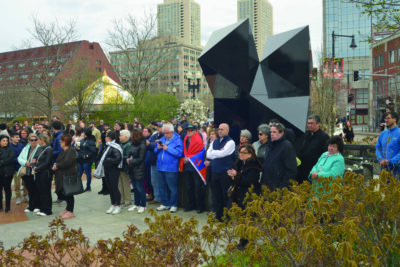By Alin K. Gregorian
Mirror-Spectator Staff
SEATTLE, Wash. — Conductor Tigran Arakelyan may be young, but you would not know it from talking to him.
Arakelyan’s love affair with music started through a difficult situation. Arakelyan said that during his childhood, he suffered from bad asthma. “It was pretty intense,” he said.
His parents took him to a homeopathic doctor, who suggested that to strengthen his lungs, he should take up a wind instrument. This being Armenia, he suggested duduk or zurna. Eventually, young Tigran picked the flute and he found himself totally enamored.
Not only did the use of the instrument help his asthma, but also the music itself became a balm for his ailment.









